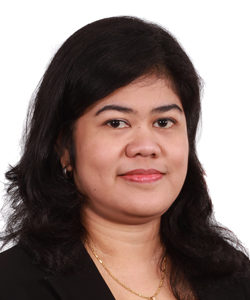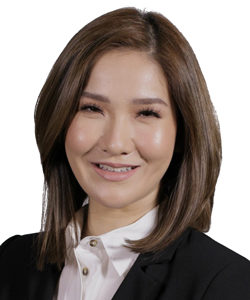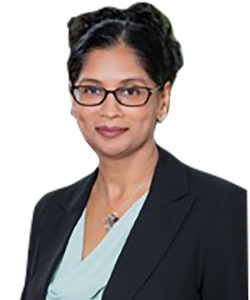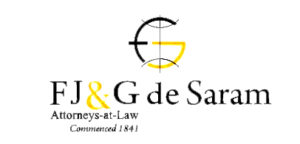Jurisdictions around the region have developed laws regarding equality of gender to varying degrees. The levels of progress can be illuminating
Navigation:
INDONESIA
Women’s empowerment has become a significant socio-political factor for economic growth, political stability and social transformation in the modern world. Women’s economic empowerment refers to the ability of women to enjoy their right to control and benefit from resources, assets, income and their own time, as well as the ability to manage risk and improve their economic status and wellbeing.

Senior Partner
HHP Law Firm in Jakarta
Tel: +62 21 2960 8686
Email:
Mita.Guritno@bakermckenzie.com
In Indonesia, Raden Ajeng Kartini is considered to have been a pioneer of women’s empowerment back in the Dutch colonial days. She advocated for women to be able to access education when it was still prohibited, because of the expectation at that time that women should only become housewives and take up the role of a caregiver to the family.
Nowadays, more than a century after Raden Ajeng Kartini’s time, women in Indonesia have made significant strides in various areas. Improvements have been recorded in health, education, labour force engagement and political participation. Credit must be given to the Indonesian government for its commitment to addressing gender inequality. Policies on gender equality and empowerment of women have been adopted at several levels, such as:
- At the international and national levels, through the ratification of the UN Convention on the Elimination of All Forms of Discrimination against Women with Law No. 7 of 1984;
- At the national level, through the People’s Consultative Assembly (the highest political body in Indonesia) Decree Number IV/MPR/1999 on the Broad Guidelines of State Policy 1999-2004;
- The establishment of National Machinery for the Advancement of Women in a 1978 Presidential Decree;
- Law No. 25 of 2000 on the National Development Programme;
- Presidential Instruction No. 9 of 2000 on Gender Mainstreaming in National Development;
- National Action Plan for the Elimination of Violence Against Women;
- Inclusion of gender-mainstreaming policy in 38 programmes of the National Development Programme (2000-2004)
- Law No. 12 of 2003 on General Election, under which each political party participating in a general election should consider having at least 30% women representation in the nomination of its members for national, provincial and local representative councils.
In some workplaces in Indonesia, gender bias may remain strong, despite many companies’ best efforts to promote diversity and equality. Concrete policy initiatives need to be implemented, and more diverse and successful teams need to be created to unlock the full potential of the workforce, as gender diversity has been proven to improve team performance and success.

Associate Partner
HHP Law Firm in Jakarta
Tel:+62 21 2960 8562
Email:
Primastuti.Purnamasari@bakermckenzie.com
According to the theme of the International Women’s Day this year, which is #BalanceforBetter, many initiatives and policies can be implemented within the workplace to help women workers in the workforce.
In Indonesia, women workers often have to choose between their career and family. Most of them leave their jobs when they become mothers because they do not get sufficient support on meeting the needs of their children and families.
These women may also turn down leadership positions or quit their jobs, even when they have been identified as highly talented, which is a wasted opportunity for both the individual and the organization.
As one of the leading law firms in Indonesia, HHP Law Firm has embraced women empowerment since the very beginning. HHP Law Firm was established by two strong female lawyers, Sri Indrastuti Hadiputranto and Tuti Hadinoto, who were both supporters and believers that women and men were created equal.
The motto of this year’s International Womens Day, #Balanceforbetter, has been embedded in our DNA since early on. As a firm, we support gender equality in the workplace and equal opportunity for both men and women workers to build their careers within the firm. This is because we believe that companies greatly benefit from increasing employment and leadership opportunities for women, to improve and optimize organizational effectiveness and growth.
As one of many companies that have supported empowerment of women in the workplace, one of the solutions that our firm can provide is having infrastructure in the workplace to support young mothers, such as a lactation room. Research has proven that breastfeeding is the optimal way of feeding infants in their early years. Therefore, to ensure that children receive the best possible treatment, it is of utmost importance that the organization gives breastfeeding support to working mothers in the workplace.
Our firm is also in discussion about providing childcare facilities, whether within the firm or in co-operation with other nearby childcare facilities. This will benefit working mothers to balance their work and their family life.
HHP Law Firm has also introduced flexible work arrangements. These include allowing employees to work any eight hours of the day (not strictly from 9am to 5pm), to work reduced hours, or to work remotely, which could be at home or at another place closer to their home. Many employees, especially women employees, have benefited from these schemes.
For working mothers, these schemes give them time to drop their children to school or to pick them up from school. Not only does this make people more productive and improve their overall performance, but it also helps them to achieve the level of work-life harmony they desire.
Other support that organizations can provide is offering equal and attractive opportunities for learning and development, as well as career progression to women employees. We understand that in addition to facing institutional obstacles, women likely face a battle from within.
Insecurity at work is generally seen as a personal foible. The feeling of insecurity makes it difficult for women to make their voices heard. Other than insecurity problems, for some women, embarking on a leadership path in their career can seem like a difficult journey. Although women have made great strides in the workplace, inequality and double standards still exist, and these types of challenges can stifle a woman’s desire to strive for a leadership position.
One of the programmes that the firm introduced to overcome insecurity at work, and to offer equal opportunities for both men and women workers, is in the form of mentorship programmes, which provide the opportunity for female employees to express their concern or challenges at work in a private setting.
Through the power of mentoring, all employees have the same access to opportunity, regardless of their gender and age. We also address the challenges that a diverse workforce can face, and provide solutions for these challenges. With mentorship programmes, women are given a chance to push forward in their careers, where traditionally men have been more present.
Multi-rater reviews like 360-feedback tools can also be adopted to identify the training needs of female employees. It can heighten self-awareness on the necessary competencies required to attain career advancement. This is also useful in uncovering hidden strengths that a female employee may have, but is unaware of.
To show the firm’s commitment in this area, the firm has also established a Diversity and Inclusion Committee, which is tasked to think about and create programmes or initiatives that could provide better support for, among other things, women empowerment and gender equality. Therefore, for the firm, this is a continuous journey for the betterment of the workplace.

Hadiputranto Hadinoto & Partners (HHP Law Firm)
Pacific Century Place, Level 35
Sudirman Central Business District Lot 10
Jl. Jendral Sudirman Kav.52-53 , Jakarta 12190
Indonesia
Tel: +62 21 2960 8888
Fax: +62 21 2960 8999
PHILIPPINES
This article focuses on laws relevant to sexual harassment in the Philippines. Republic Act No. 7877, also known as the Anti-Sexual Harassment Act of 1995, is the main Philippine legislation that defines and penalizes sexual harassment in the workplace, or in an education or training environment. The Anti-Sexual Harassment Act of 1995 defines sexual harassment as one that is “committed by an employer, employee, manager, supervisor, agent of the employer, teacher, instructor, professor, coach, trainer, or any other person who, having authority, influence or moral ascendancy over another in a work or training or education environment, demands, requests or otherwise requires any sexual favour from the other, regardless of whether the demand, request or requirement for submission is accepted by the object of said act.”
The Anti-Sexual Harassment Act of 1995 further enumerates instances when sexual harassment is committed, as classified in the environment it is exhibited. In a work-related or employment environment, sexual harassment is committed when:
- The sexual favour is made as a condition in the hiring or in the employment, re-employment or continued employment of said individual, or in granting said individual favourable compensation, terms of conditions, promotions or privileges; or the refusal to grant the sexual favour results in limiting, segregating or classifying the employee, which in any way would discriminate, deprive or diminish employment opportunities or otherwise adversely affect the employee;
- The above acts would impair the employee’s rights or privileges under existing labour laws; or
- The above acts would result in an intimidating, hostile or offensive environment for the employee.
In an education or training environment, sexual harassment is committed:
- Against one who is under the care, custody or supervision of the offender;
- Against one whose education, training, apprenticeship or tutorship is entrusted to the offender;
- When the sexual favour is made a condition to the giving of a passing grade, or the granting of honours and scholarships, or the payment of a stipend, allowance or other benefits, privileges, or consideration; or
- When the sexual advances result in an intimidating, hostile or offensive environment for the student, trainee or apprentice.
The Anti-Sexual Harassment Act of 1995 also punishes a person who directs or induces another to commit any act of sexual harassment as defined by law, or who co-operates in the commission thereof by another without which it would not have been committed (section 3 of the Anti-Sexual Harassment Act of 1995).

Associate
Quisumbing Torres
Employment Practice Group
in Manila
Tel: +63 2819 4948
Email: RosalynRuth.Anuncio@quisumbingtorres.com
An employer is duty bound to: (1) promulgate rules and regulations jointly approved by the employees, students or trainees describing the procedure for the investigation of sexual harassment cases and the administrative sanctions; and (2) create a committee on decorum and investigation for cases on sexual harassment (section 4 of the Anti-Sexual Harassment Act of 1995).
Noteworthy is the fact that an employer may be held liable for damages arising from the acts of sexual harassment committed in the employment, education or training environment if the employer or head of office, educational or training institution is informed of such acts by the offended party and no immediate action is taken (section 5 of the Anti-Sexual Harassment Act of 1995).
The penalty under the Anti-Sexual Harassment Act of 1995 is imprisonment of not less than one month nor more than six months, or a fine of not less than PhP10,000 (US$193) nor more than PhP20,000, or both fine and imprisonment at the discretion of the court (section 7 of the Anti-Sexual Harassment Act of 1995).
Republic Act No. 9262, also known as the Anti-Violence Against Women and Their Children Act of 2004 includes sexual harassment as a form of sexual violence against women and prescribes penalties for the commission of such acts. Sexual violence is defined as “an act which is sexual in nature, committed against a woman or her child.
It includes, but is not limited to:
- Rape, sexual harassment, acts of lasciviousness, treating a woman or her child as a sex object, making demeaning and sexually suggestive remarks, physically attacking the sexual parts of the victim’s body, forcing her/him to watch obscene publications and indecent shows, or forcing the woman or her child to do indecent acts and/or make films thereof, forcing the wife and mistress/lover to live in the conjugal home or sleep together in the same room with the abuser;
- Acts causing or attempting to cause the victim to engage in any sexual activity by force, threat of force, physical or other harm or threat of physical or other harm or coercion;
- Prostituting the woman or child (section 3B of the Anti-Violence Against Women and Their Children Act of 2004).
The Anti-Violence Against Women and Their Children Act of 2004 punishes engaging in any form of harassment or violence against women and their children. It appears that the language of the legislation is broad in its scope to encompass various acts such as sexual, physical or psychological harassment. The penalty of imprisonment under this act depends on the specific acts of the offender.
In addition, the imposition of fines in the amount of not less than PhP100,000 but not more than PhP300,000; and to undergo mandatory psychological counseling or psychiatric treatment and report compliance to the court is mandated under section 6 of the act.
Other regulations
Several local cities such as Quezon City and the City of Manila have adopted local ordinances recognizing and penalizing catcalling as a form of sexual harassment.

Associate
Quisumbing Torres
Employment Practice Group
in Manila
Tel: +63 2819 4968
Email: JoyceAiza.Chan@quisumbingtorres.com
Ordinance No. 2501-2016, issued by Quezon City, also known as the Gender and Development Code of Quezon City, imposes a fine and jail term for acts considered as sexual harassment of women in public spaces.
The Gender and Development Code of Quezon City defines sexual harassment against women in public space as “unwanted, unwelcome, uninvited comments, gestures and actions forced on a woman in public places without their consent, and is directed at them because of their sex, gender, gender expression, or sexual orientation that affect victims not just physically but moreover psychologically causing anxiety, fear, depression, post-traumatic stress disorder, or other effects damaging the health and well-being of a person”.
Light violations, such as cursing, catcalling, repeatedly asking the subject for a date or her contact number, or taunting a woman with constant talk about sex, are punishable with a fine of from PhP1,000 to PhP5,000, or imprisonment of up to one month. The penalty increases based on the severity of the acts.
Ordinance No. 7857 issued by the City of Manila, also known as the Safe City for Women and Girls Ordinance of 2018, prohibits all forms of sexual harassment including catcalling, wolf-whistling, cursing and stalking.
Violators will face one day to one year of jail time plus a fine ranging from PhP200 to PhP5,000. Violators are required to attend a gender sensitivity seminar conducted by the Philippine National Police and the Philippine Commission on Women.
The above-mentioned legislation and ordinances define the rights and remedies of victims of sexual harassment. These laws aim to empower those who have been sexually harassed to speak up and hold their offenders liable for the latter’s acts.
Despite the fact that there is existing Philippine legislation penalizing sexual harassment, victims are not aware of their legal remedies, or are silenced as a result of the stigma attached to the cxoncept of sexual harassment. Victim shaming is often the culprit in undocumented cases of sexual harassment.
The #MeToo movement paved the way for information dissemination and women empowerment. Women no longer suffer in silence, and they take an aggressive stance in asserting their rights under prevailing legislation. There is an increase in the complaints on sexual harassment cases in the workplace and catcalling violations as a result of the #MeToo movement.
As there is a need to balance confidentiality or anonymity of reports with the need to document and substantiate incidents of complaints, employers should establish a system whereby complainants and whistleblowers are adequately protected in the workplace in the event complaints for sexual harassment are reported by them.
A mechanism whereby the identities of those who file reports are anonymous, especially when they are not indispensable to the case’s resolution, and those whose identities are necessary to be disclosed are protected from retaliation, should be put in place.

Quisumbing Torres
12th Floor, Net One Centre
26th Street corner 3rd Avenue
Crescent Park West, Bonifacio Global City
Taguig City 1634
Philippines
Email: QTInfoDesk@quisumbingtorres.com
SRI LANKA
Women are a minority in Sri Lanka’s workforce. Women have, however, over the years, contributed to the economy of the nation significantly. Several industries that are key to foreign earnings are female worker-based.
For decades, tea was the primary export product. The majority of workers in tea plantations have always been women. Today, the garment industry, which accounts for US$5 billion of the country’s total export earnings, is driven by women workers. Remittances from Sri Lankans working abroad amount to US$6.3 billion per annum, and out of the 1.7 million Sri Lankan remitters, 37% are women.

Ayomi Aluwihare
Precedent Partner
F J & G de Saram in Colombo
Tel: +94 114605115
Email:
ayomi.aluwihare@fjgdesaram.com
In the professions also, women outnumber men. According to the 2018 final quarter statistics of the Department of Census and Statistics, 60% of the professionals working in Sri Lanka are women.
While equality is enshrined in the constitution of Sri Lanka, and the country has made recognized progress on gender equity with regard to education and other social indicators, the employment-related laws, which were enacted in a state welfare era in the 1970s, and some of the older laws that are (though outdated) in force, do not today accord to women the same rights accorded to men with regard to work. A woman is not able to work after 6pm in a shop or office, the number of hours she can work overtime is subject to a limit, and she is not permitted to sell liquor.
Prior to the introduction of the Sex Disqualification Removal (Legal Profession) Ordinance No. 25 of 1933, women were not permitted to be admitted to the legal profession.
Ordinance No.25 of 1933 gave license to the women to become and to practice as advocates, proctors and notaries, and to become commissioners for oaths. Section 2 of this ordinance states:
“A woman shall not be disqualified by reason only of her sex: (a) from being admitted and enrolled, or from practising, as an attorney at law; (b) from being authorized to practise as a notary by a warrant issued under the provisions of the Notaries Ordinance, or from practising or functioning as a notary under the provisions of that ordinance or of any other written law; or (c) from being appointed, or from functioning as a commissioner for oaths under the provisions of the Oaths Ordinance.”
Today, the number of women lawyers outnumber men. According to the 2017 statistics of the Bar Association of Sri Lanka, out of 1,097 lawyers admitted as attorneys at law in that year, 65% were women.
The career options available to women include court work at the private or public bar, advisory work in a firm, or as in-house counsel in a corporate or public body, in the judiciary, in non-governmental organizations, and as an academic in a university.
The judiciary and court work is still dominated by men, however, and there are many reasons for this. The nature of work and working hours, and women preferring daytime work to allow time for their work as a homemaker are among the main reasons.
Women lawyers dominate all other spheres of legal work. Sri Lanka has had women lawyers in the positions of chief justice, Supreme Court and Court of Appeal judges, attorney general, vice chancellor of a university, dean of law faculties in universities, legal draftsman, minister of justice, principal of the Law College, professors of law, president’s counsel, precedent partners at leading law firms, and many general corporate counsel.
F J & G de Saram, established in 1841 in Colombo, is the oldest and one of the largest law firms in Sri Lanka. It is a full-service law firm providing legal services in all areas of corporate and commercial law to its clients including leading business houses in Sri Lanka and the majority of the transnational corporates engaged in business in Sri Lanka.
F J has always had women in its workforce. The first woman lawyer was hired in the later 1950s. Today, 65% of the professional workforce are women and five out of the seven partners are women. A culture of equal opportunity and progression based entirely on merit has been a cornerstone of the practice.
In recognition of the need to support women lawyers in their multi-faceted roles, the firm has invested in IT infrastructure including in security, to enable diverse work models. The firm offers flexible work arrangements such as part time work and work from home, on request, to enable women to meet demands as primary homemaker and to ensure work life balance. The firm also runs a crèche for the children of lawyers and provides extended maternity leave.
The firm enjoys many benefits from its approach to supporting its women lawyers, including the progression of a high number of women lawyers to partnership (no other law firm in Colombo has a majority of women partners) and access to resources that may not otherwise have been available to the firm.
Of 500 married women interviewed for an International Labour Organization study in Sri Lanka in 2016, as many as 48% of the women who had been previously employed cited giving up their jobs for homemaking as their main reason to stop working. This firm has seen minimal attrition due to marriage and children. Combined teams of men and women are enriched by the particular traits and thought processes of each, and have often resulted in exceptional work output in all aspects of the provision of legal services, i.e. from adapting to, and innovating in, a changing business environment, to client management and providing relevant legal advice.
FJ’s experience in encouraging and supporting women lawyers in recognition of the special role of women as homemakers as well as professionals, has been that the contributions of the women lawyers in the firm have been invaluable, benefiting the organization and its lawyers.

F J & G de Saram
No. 216, De Saram Place,
Colombo 10, Sri Lanka
Tel: +94 114605100, or +94 114718200
Email: fjgdesaram@fjgdesaram.com


























